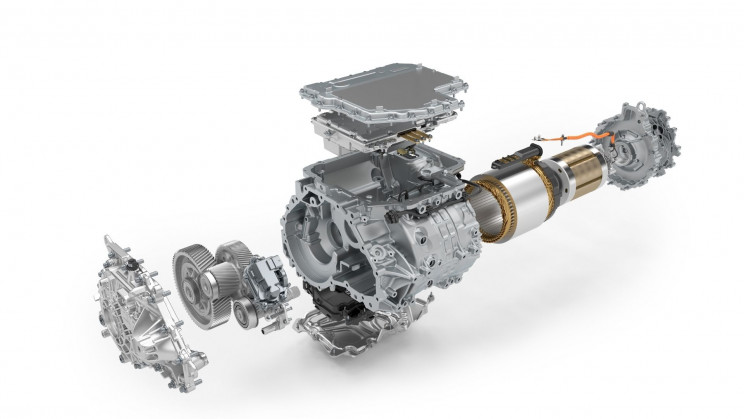
The electric vehicle industry is looking to solve the problem of rare earth metals, which are increasingly hard to source ethically without sacrificing motor efficiency.
BMW fifth generation electric motor which will power its new BMW iX M60 provides a solution that combines an old school sensibility with high tech EV technology to actually improve efficiency without the use of rare earth minerals
Old tech boosts EV sustainability
BMW recently announced that the standard combined output of the front and rear motor of its new iX M60 will be 532 hp and 749 lb-ft of torque. The front motor will output 255 hp while the rear motor in normal operation will have an output of 483 hp. Other modes such as Sport Boost mode would see the combined output jump up to 610 hp.
To achieve these impressive numbers, BMW developed its magnet-free fifth-gen motor, which operates as a three-phase AC synchronous motor and, in a retro twist, utilizes brushes and a commutator to power its rotor windings. Typically, brushes and commutators generate dust and cause wear that requires them to be replaced periodically. That’s why most electric vehicle makers have opted not to use them.
However, BMW hopes that its use of modern materials and its high-tech sealing technology will mean a longer lifespan for its brushed motor than is traditionally the case. A BMW representative told that the new motor’s brush modules are placed “in an enclosed and sealed compartment, eliminating dust contamination inside the stator/rotor wiring.”
Turning away from rare earth metals
Rare-earth metals used in permanent magnet motors are increasingly difficult to source in an ethical fashion and China controls over 90 percent of the world’s reserves of the materials. Companies such as German firm MAHLE and even Bentley are developing highly efficient magnet-free induction motors in a bid to reduce this great reliance on China as well as to improve the sustainability record of an industry that’s built largely on the promise of reducing fossil fuel consumption.

BMW has followed suit with its new magnet-free electric motor. Its fifth-gen motor has more energy density, better heat management, and faster switching frequency. All of this, the company says, “translates to higher RPM, more torque, and even more power.”
In other words, BMW is helping the electric vehicle industry to address one of the issues spurring detractors to claim it’s not as good for the planet as advertised. And it’s doing this while enabling the impressive spec exhibited by its new iX M60.

